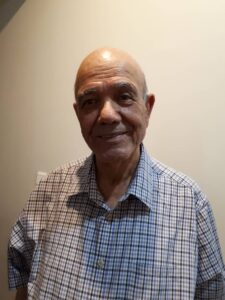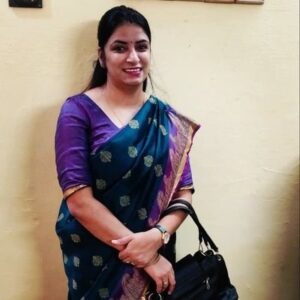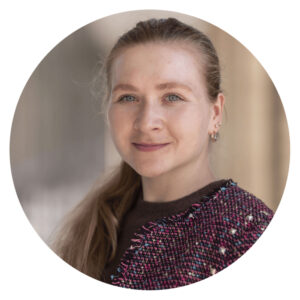DOAJ has over 100 volunteers who contribute their time and skills to reviewing applications. We are grateful for the work that our volunteers do, as editors and associate editors, supporting Open Access principles at home in their day to day work and abroad.
DOAJ volunteers come from all over the world, from a variety of backgrounds, and speak many languages. In this blog post, we’ve checked in with three of them to learn more about their backgrounds and motivations for volunteering with DOAJ.
Hello Mohammad! Tell us about your background and your experience volunteering with DOAJ.

Mohammad Amini, Isfahan University of Technology, Iran
Associate Editor, Farsi group
I am a retired professor of Physics at Isfahan University of Technology, Iran. I started my collaboration with DOAJ in 2014, and since then I have reviewed more than 500 journals in Farsi (Persian) and in English. The majority of journals I review are from Iran and some from Afghanistan. I have a lot of experience with scientific journals. I am one of the founders and previous Editor-in-Chief of Iranian Journal of Physics Research (1994-2022) and at present, I am a member of the Editorial Board of this journal.
A major part of my experience with scientific journals comes from the time of hard copy journals. At that time I was lucky to be able to use the British Library facilities. in which we had access to almost any published material. When I returned to Iran, I had to cope with the limited number of journals and the delay in receiving them. The electronic journals facilitate our quick access to many more journals. Open access journals are a great help for the scientific communities in third-world countries.
As online publication is much easier and at a lower cost than hard copy journals, at present there are more than 3000 periodical journals published in Iran, mostly in Farsi. With such a large number of published journals, some of them may not meet the desired standards for quality. There is a commission at the “Ministry of Sciences, Research and Higher Education” which is responsible for guiding the journals to achieve better quality. In short, we need fewer journals that are of better quality. At the present time in DOAJ our focus is on the publication or editorial policy side of the journals and the scientific aspect of the journals may be neglected. I am quite happy to offer any help to the scientific society of Iran and worldwide as much as I am able.
Hello Priya! Tell us about your background and your experience volunteering with DOAJ.

Priya Rangra, Central University of Himachal Pradesh, India
Associate Editor, India & Pakistan group
I am a Research Scholar pursuing a PhD at the Department of Library and Information Science, Central University of Himachal Pradesh, Dharamshala, India. My research interests encompass Open Science, Knowledge Organization, Information Seeking Behaviour, Bibliometrics, Accessible Information, and Quantitative Analysis. Previously, I worked at the Indian Institute of Advanced Study, Rashtrapati Nivas, Shimla, and am currently managing the media tape library at Prasar Bharati.
As an advocate for open science, I am actively involved in spreading awareness about open access publishing across India. I have received funding from the Open Research Funders Group (ORFG) to conduct workshops nationwide, where I include dedicated sessions on the Directory of Open Access Journals (DOAJ) to educate researchers and academics on identifying credible open access resources. I am also serving as a Community Contributor in the Education Interest Group of the Public Knowledge Project.
Additionally, I was awarded a grant by the Wellcome Trust to attend the Make Data Count Summit 2024 in London, which focuses on enhancing data citation and usage metrics. My goal is to foster a culture of openness and accessibility in scholarly communication, empowering researchers with the knowledge and tools to make their work more visible and impactful through open access practices.
Hello Nataliia! Tell us about your background and your experience volunteering with DOAJ.

Nataliia Kaliuzhna
Leibniz Information Centre for Science and Technology, Germany/ Kyiv National University of Culture and Arts, Ukraine
Associate Editor, Slavic group
I am a Ukrainian librarian and researcher working at the Leibniz Information Center for Science and Technology and pursuing a PhD in Information, Library and Archival Studies at Kyiv National University of Culture and Arts. I am passionate about knowledge production, dissemination, and access, with a particular emphasis on scholarly communication, academic publishing, open scholarship and open access. In my current research project IDAHO, I am investigating challenges and obstacles that confront authors that do not have strong ties to academia but still engage in research and produce open access publications.
I joined the DOAJ team in November 2021, and the experience has been incredibly rewarding. Working with DOAJ has allowed me to put my theoretical knowledge into practice by supporting editors in improving the quality of their journals. It is fulfilling to know that my efforts contribute to advancing academic publishing standards. One of the things I appreciate most about this role is staying connected with the latest trends and developments in the field. Whether it is new terminology in peer review or emerging policies on AI regulation in academic publishing, I regularly turn to resources like COPE and NISO to stay informed. The DOAJ Quality Team and Managing Editors also share useful materials that help me stay informed on a regular basis.
Besides my primary duties, I had the opportunity to be a trainer at the Supporting Ukrainian Editorial Staff (SUES) Summer School, a program tailored for Ukrainian scientific editorial offices. We also have a case study paper under review with UKSG’s journal Insights, co-authored with fellow Associate Editors and DOAJ staff, discussing how open scholarly communication infrastructure supports academic publishing in conflict zones, using Ukraine as an example.
Are you interested in becoming a volunteer for DOAJ?
DOAJ will post a call for volunteers on our social media platforms. Please subscribe to and follow this blog to keep updated with any new calls for volunteers that fit your geographical or linguistic background.
